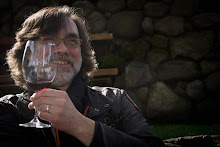An ideal lawn is completely uniform. The grass is one height, one texture, and one shade of green. Needless to say, weeds, moss, and wildflowers have no business there. It would never be confused with the wild; it is set apart from nature. It covers a clearly defined area like a cool, green carpet.
A garden, on the other hand, celebrates variety. It is home to an assortment of plants, each with its own needs and qualities. Deciduous, evergreen, creeping, climbing, twiggy, bushy, leafy, shade-loving, sun-craving, drought-resistant, frost-sensitive, hardy, showy, modest, etc… It is a place for wildly diverse expressions of planthood.
The ideal garden is a seamless, living truce between the tame and the wild – between humans and nature. Lawns, on the other hand, are human creations; nature has only a limited role with them. A proper lawn can’t exist without a lawnmower. Conversely, the thought of mowing a garden is as ludicrous as it is disturbing!
Is the church more like a lawn or a garden? It’s easier to manage a large group of people if their maintenance can be standardized. The same watering regimen, the same fertilizer and the same dose of weed-killer work for everyone. Measuring progress is far less complicated if the target is conformity to one standard.
Sameness isn’t holiness, though. Our challenge is to bring ourselves into alignment with Christ’s image, not conform to someone’s notion of the ideal Christian. It will require a host of believers, each reflecting Christ’s image according to their own unique styles, to even begin to express the vast loveliness of Jesus.
In my opinion, the Creator wants a garden. Jesus interacted with people in all sorts of ways; his approaches were as diverse as the people themselves were. The only group he tended to address in broad, generalized terms was the group that wanted to mow humanity: the religious elite. But it is obvious that his true passion was for individuals. He engaged people creatively and uniquely; he delighted in discovering and illuminating each person’s interior.
A lawn church is fertilized and weeded with a toxic concoction of religion and subculture. Legalism is its lawnmower. It is artificially sustained, separate from both God’s kingdom and the world.
Conversely, the garden church celebrates variety. It is home to assorted humans with assorted needs and qualities. Some are colorful, some muted – some kinetic, some reserved – some produce spiritual fruit continually, while some require seasons of rest after harvests. Some are as fussy as roses; some are as hardy (and occasionally as invasive…) as weeds. Some are as strong as trees, and some cling like vines. Some announce their yield of fruit with showy blossoms, and others bear their fruit invisibly underground. The garden church is a place for wildly diverse expressions of the human faith-journey.
Friday, April 07, 2006
Lawn and Garden Care
Labels:
Church,
Conformity,
Diversity,
Faith-Life,
Garden,
Interior,
Jesus,
Spiritual,
Variety,
Wild
Subscribe to:
Post Comments (Atom)

12 comments:
What a beautiful metaphor. I love it. It reminds me of the book "The Secret Garden". Also I just finished "Blue Like Jazz." Have you read it? You have to read it.
Hi Courtney - it's nice to see you here among the soul-friends again...
Yes, I've read Blue Like Jazz: definitely worthwhile. I think he's been influenced by some of the same writers I love (Annie Dillard, Anne Lamott, Barry Lopez).
Sometimes I listen to podcasts of sermons from Imago Dei (the church Miller is part of in Portland).
Cinchbugs. Nitrogen. Manganese.
Former greenskeeper...here at Augusta...
It sure felt like a garden yesterday: individuals, families, community...a richness in diversity, even though it may not always look that way from the outside. the hard work is really beginning to take root and to show. keep up the hard work, scott, and everyone who contributes to the garden of WC.
I have to agree -- it did feel like a garden. And thank you for the nice affirmation!
[For those who don’t know what anonymous is referring to, “WC” doesn’t mean “water closet” in this case.]
I agree that the church is and should be a garden church but it isn't always easy to minister too this widely diverse population. It takes the patience of a master gardener to say the least. Lord, help me to learn well from you the master gardener!
No doubt! It also takes the maturity of accepting one another as we are, while challenging/helping each other toward what we're becoming. So I guess that means it requires hope too.
Indeed it is crucial that we have hope because without hope we can't have the faith and belief that we can grow and "become". A big part of this process is as Alex stated that our words and deeds affect each other and then coming full circle back to ourselves. We must not underestimate the power of our words and our actions.
Dang!... I guess that leaves those of us who happen to believe in the beginning (even pre-dating Bobby Jones)that God created golf...which of course (pun intended)leads to cultivation... which leads to a good lie in the fairway is a bunch of bunk(er).
Don't get me started on golf courses...
But suffice it to say that I stand with Roger Maris, who said, "When I hit a little white ball I expect someone else to chase it."
Back to anonymous and the centrality of hope: It seems to me that the Resurrection is necessary for that sort of hope to exist. But maybe that's due to my admittedly Christian perspective.
Post a Comment